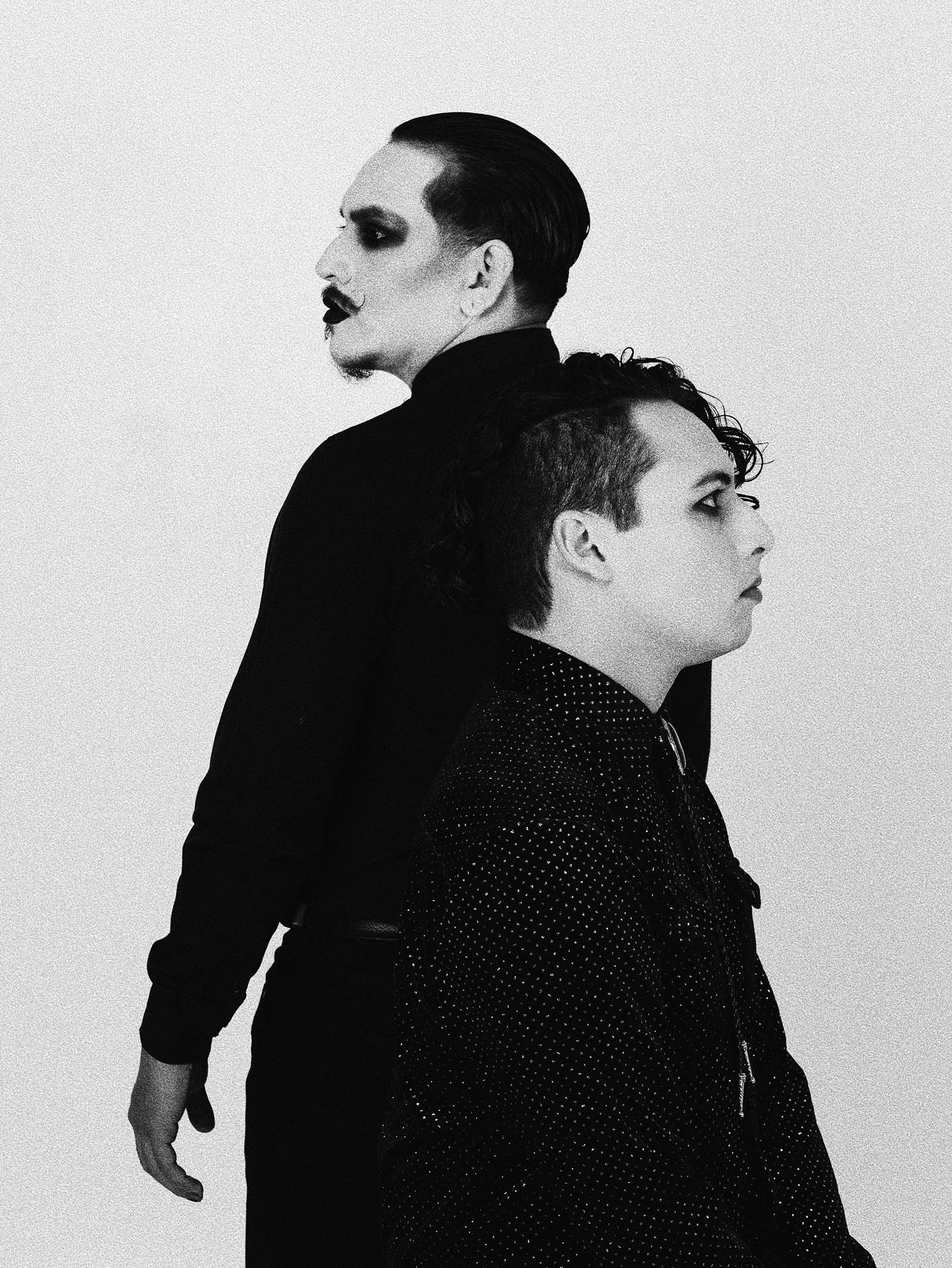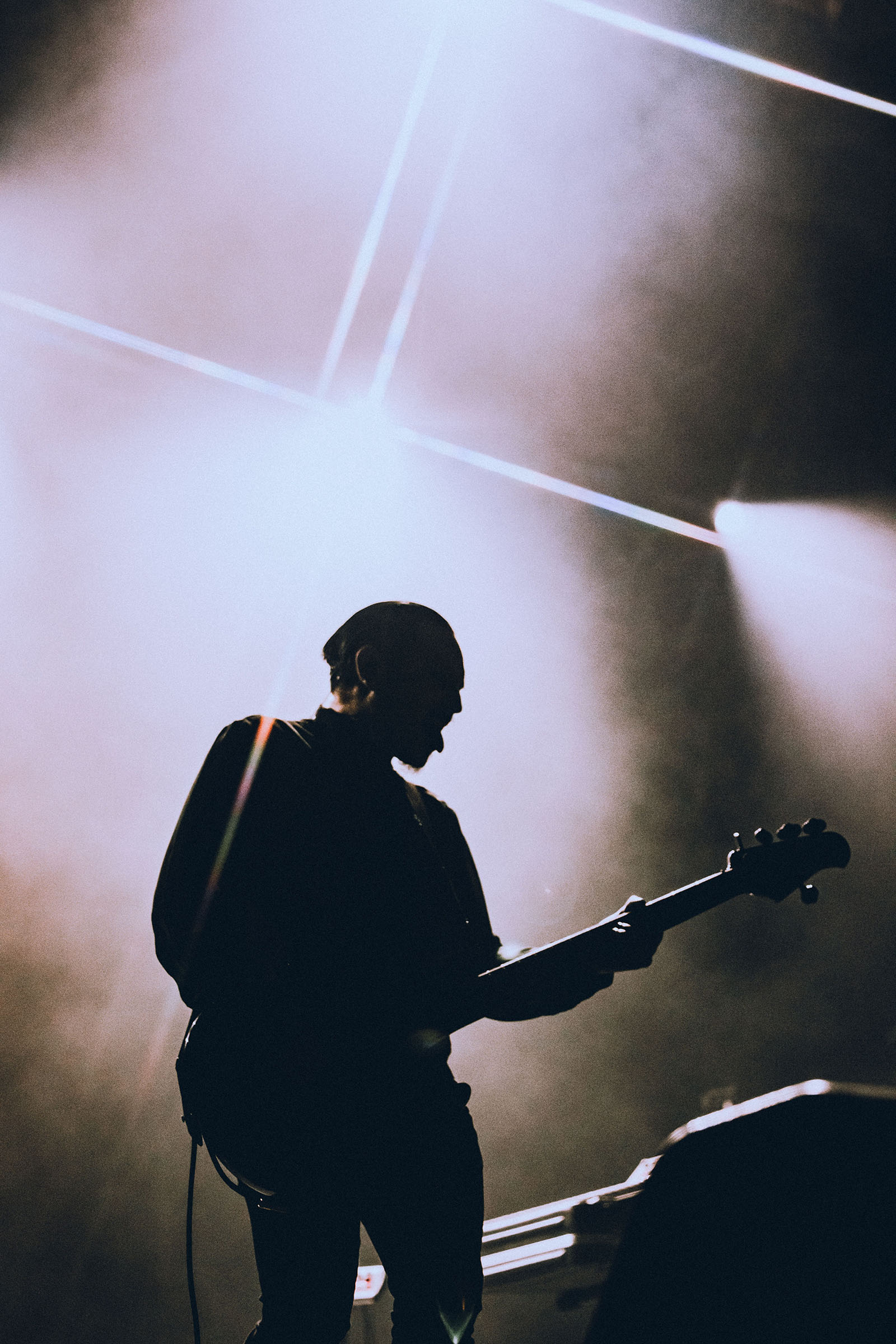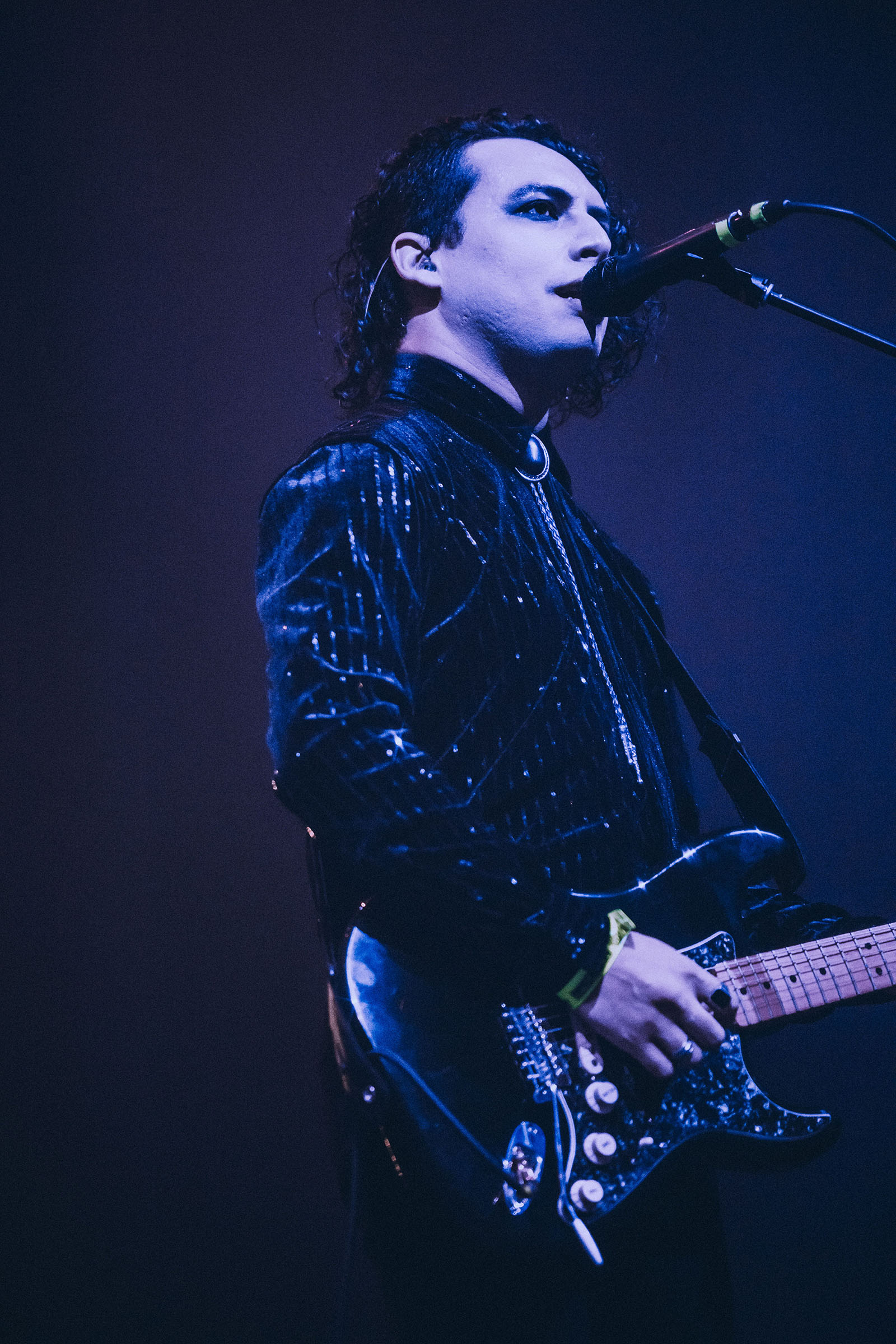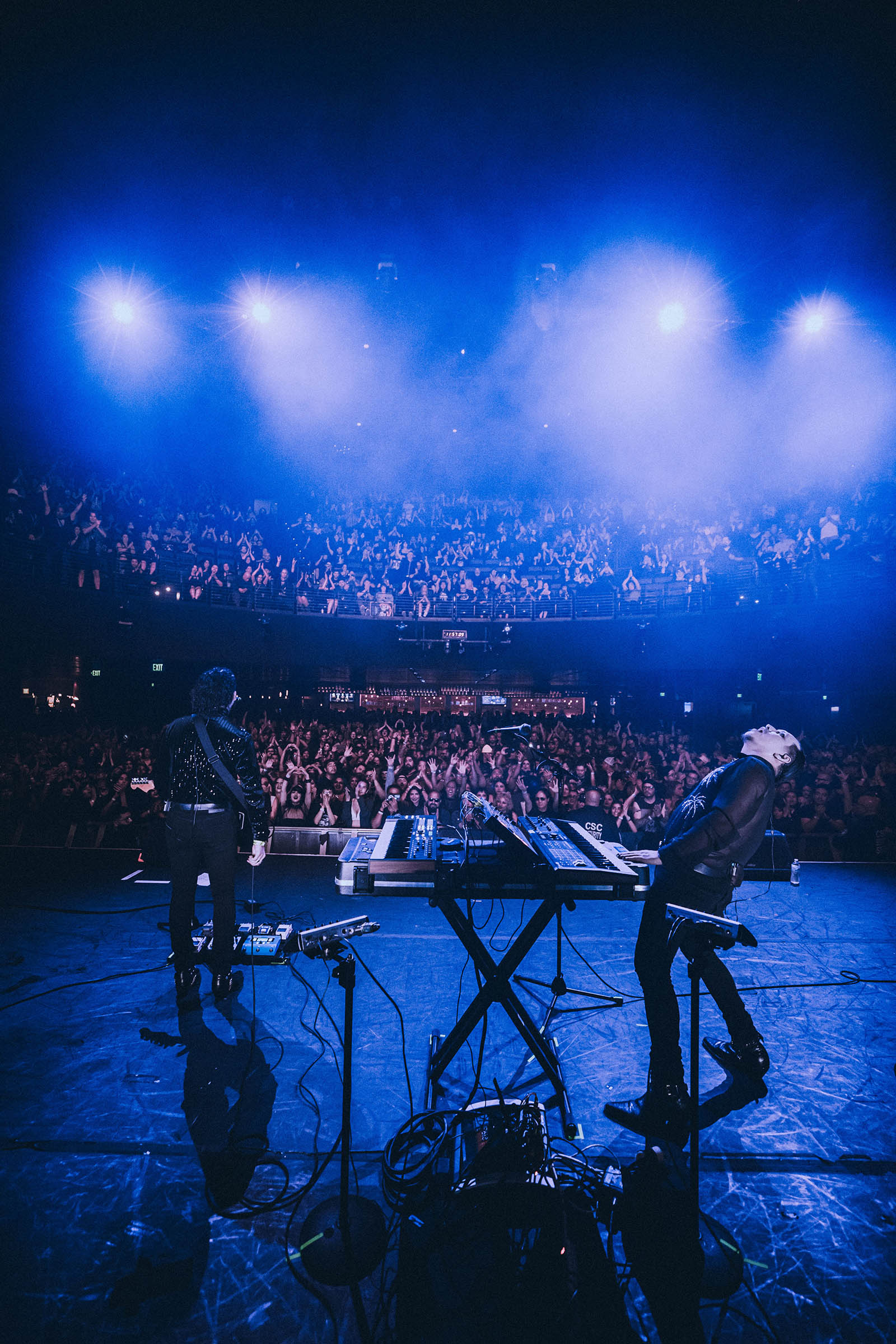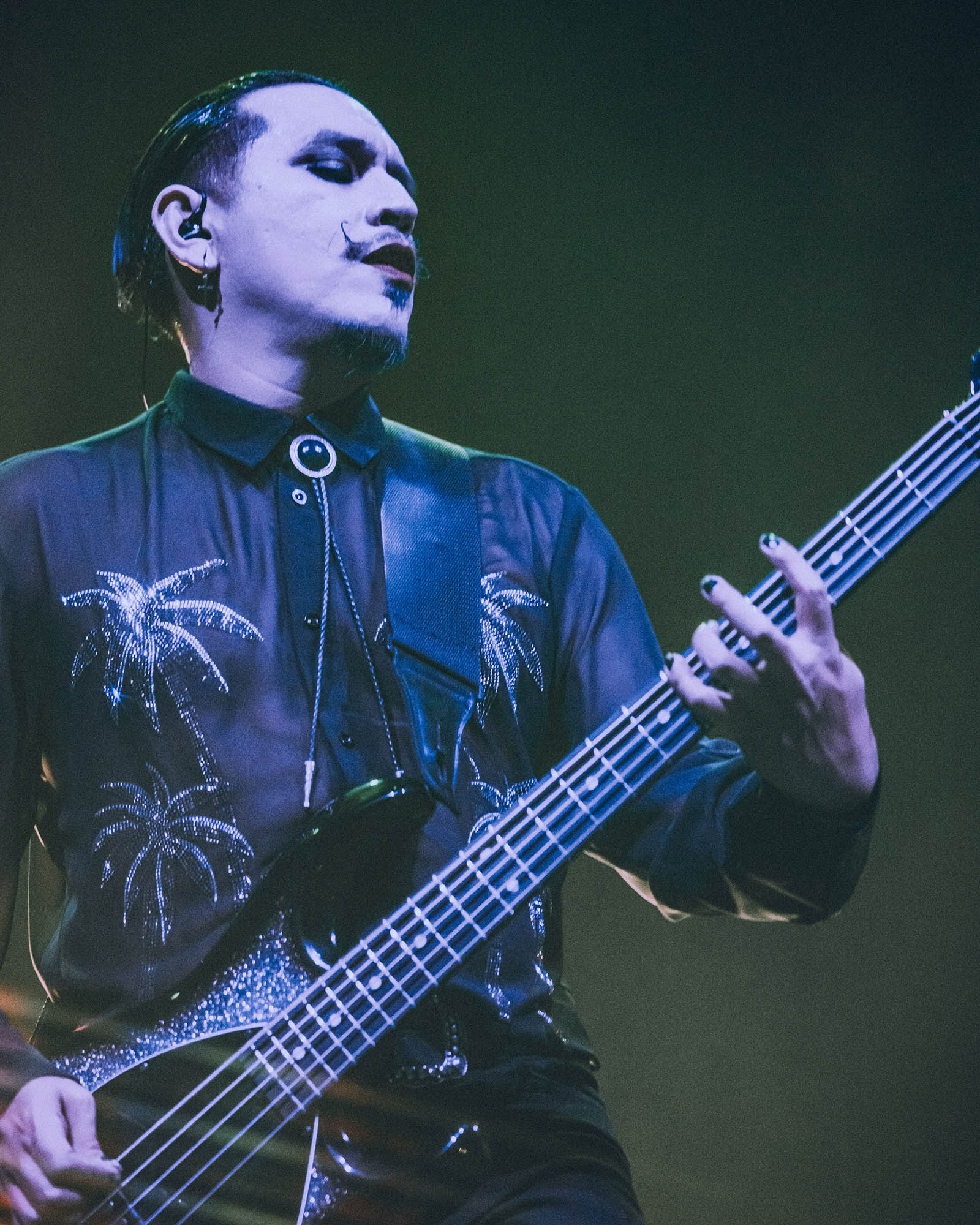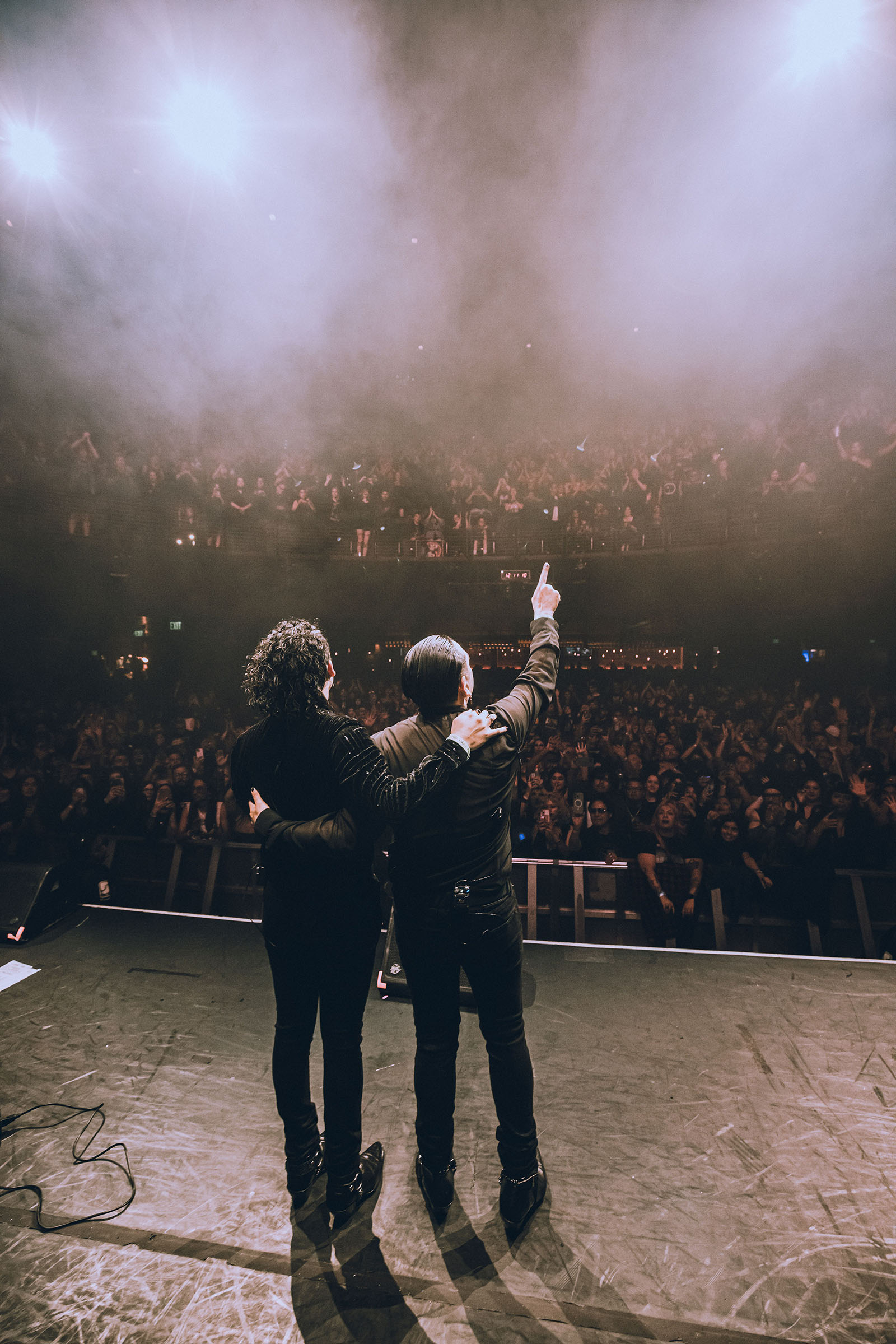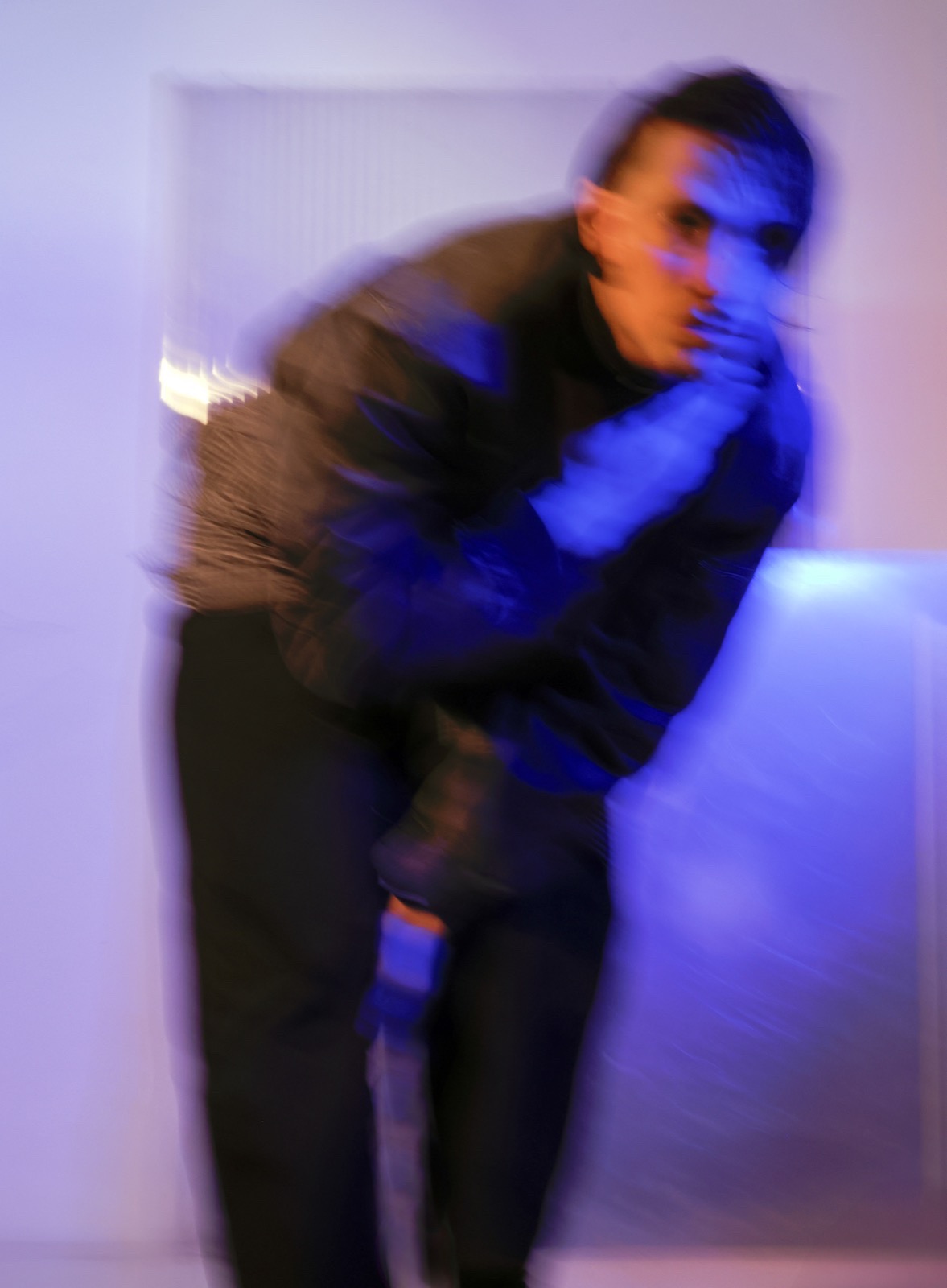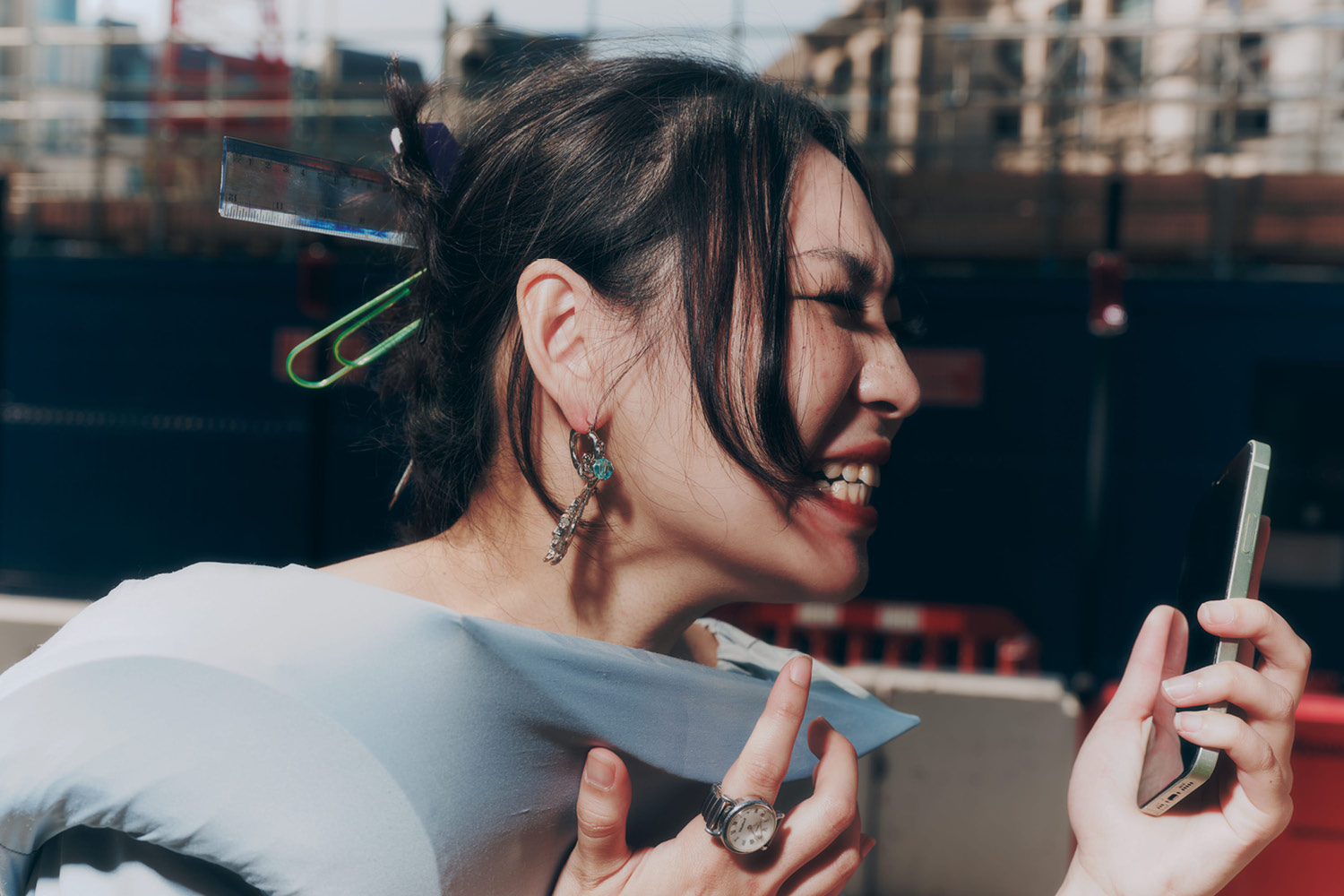Joel: Inspiration strikes at any moment, so when it comes to lyrics, song titles, or album titles, I tend to write, or type, them down immediately. That all then finds its way into that shared file Luis is mentioning. We’ll pull ideas from there, sometimes weaving different ones together. In that same sentiment, songs will take on different meanings, even to the both of us! For Sanctuary, I remember the inspiration for me being a false prophet who led his congregation astray. How someone can portray themselves as a sanctuary, a person to trust, but ultimately be in it for their own personal gains, and the wrath and pain that comes from it. That’s kind of the beauty of how we write. Even in one song we can elicit different meanings as we piece it together, and to someone who listens, it could mean something else entirely.
In the song Talisman (2018), the title is never actually mentioned in the lyrics: like a divinity, it is not mentioned to preserve its aura of sacrality. How do you relate to mysticism and spiritual beliefs, so present in your work? Is this something you practise and if so, in what way?
Luis: We loved the idea of naming Talisman and not mentioning it in the lyrics. It made it more special. I have so much respect for the occult. My spiritual beliefs are intertwined with our music. I’ve practiced little things here and there, but I don’t consider myself very knowledgeable. Also I feel people can manifest things for themselves unknowingly. But the biggest thing for me is that it has become a way of life. It has helped me view life differently for the better.
Joel: I can say that spiritually, if something makes me feel a certain way, that I’ll gravitate towards it. Whether it’s different types of stones, plants, books, or even a tarot card reading. I try to find that which makes me the happiest and at peace, surround myself with it, and that’s a special kind of magic to me.
Paradox (2024) is a purely instrumental track. Have you ever considered working on a project composed entirely of sombre, ambient soundscapes? Or are words an essential element in your creative practice?
Luis: We have had instrumental tracks in every album so far. Some include small lyrics while others are only instrumental. We think instrumental tracks are very important in our albums. It’s not only a break that feels soothing, but also these instrumentals offer a preview of the track that is about to come, like hearing elements of the synth in Paradox and Cauldron of Thorns. Maybe in the future it would be nice to put out an album of only instrumentals.
Joel: When we first started writing, I remember we had this session of creating music to a movie that was playing. I can’t remember what movie that was, but I do remember how cool that felt. I think it would be well within our abilities to create a soundtrack, or an album of instrumentals. Music alone can shift the mood, we see it so much in motion pictures. Words are not always necessary. Sometimes you just need to shut up, close your eyes, and listen.
Is there a line you’ve written that still terrifies you? One that said too much, too directly, too nakedly.
Joel: Nothing that’s terrified me, but definitely written lyrics that were so close to my heart I might as well have taken a slice of it and put it in the liner notes.
When writing or producing, do you fall into set roles, or do you shapeshift depending on the demands of the project?
Luis: I think we both shapeshift constantly. We set our egos aside and we both look for whatever is best for the song. If me not playing guitar during a specific part sounds best, we go with that. Just like Joel has no problem with me hopping on bass to write a bass line, I have no problem with him writing beautiful melodies and lyrics. It’s a constant flow.
Joel: Absolutely, the goal is always what is best for that particular piece of music. We add and take away until we can both be happy with the finished material. Sometimes that means jumping around from song to song when we get weary of listening to it, and sometimes that means a song being done in the matter of a day.
When I first reached out, you were mid-tour. Does your live ritual still carry the intimacy of your recorded work, or does it evolve into something more collective, more ceremonial? How do you keep the pulse personal, night after night?
Luis: I think our live performance has evolved over the years, but for the better. As the band gets bigger we have been able to incorporate more elements to help us tell our story. Custom lights, fog, visuals, covers, all of these things have helped us elevate our show, but I wouldn’t say we lose our essence from the recording. It’s a different vibe, but our fans love it. Thankfully every city is different, every crowd is different, and these things help us make every show we play special.
Joel: We continue to push the level of our performance. From city to city, and tour to tour. Every time we’re on that stage, we want to provide an experience that our fans can enjoy time and time again.
You also made the album Altars (2021), inviting other artists to reinterpret your songs through remixes. Which new voices would you summon for future collaborations? Who are the talents you’d like to spotlight in your next project?
Luis: We have been so lucky to have met most of the remixers from Altars and they all did an amazing job making the tracks their own. We are very proud of that album. For the future, it would be nice to work with Madeline Goldstein, Geneva Jacuzzi and Lebanon Hanover.
Joel: Past Self, TRAITRS, and Boy Harsher are just a few I can think of off the top of my head.
Beyond the usual sonic lineage of coldwave, post-punk and goth, what unexpected artists or genres have marked you? Which sounds from unfamiliar territories left a lasting imprint on your work?
Luis: Like I mentioned earlier, I’m a huge Rock en Espanol fan. Bands like Soda Stereo, Heroes del Silencio, Los Prisioneros and Caifanes played a huge role in my upbringing. I listen and still feel inspired by these bands today. Aside from these, I also love Argentinian rock like Charly Garcia, Virus and many others. And finally, I’ll close out with 90’s techno.
Joel: David Bowie, Prince, and Juan Gabriel are probably some artists that wouldn’t fall into that lineage, but have had a tremendous impact on me as a musician and a performer.
Are you returning to analogue recording for your next body of work, like with your first two albums? If you can share a little, what occult texts are shaping this new chapter?
Luis: More than likely it will be another hybrid, like Pendulum. We will not record straight to analog, but we will be using analog synthesizers and drum machines, as well as guitar and bass pedals from the 80’s. We really loved how Pendulum turned out, so we’re sure the next album will be just as great. As for texts, nothing to share for now, but hopefully in the future.


